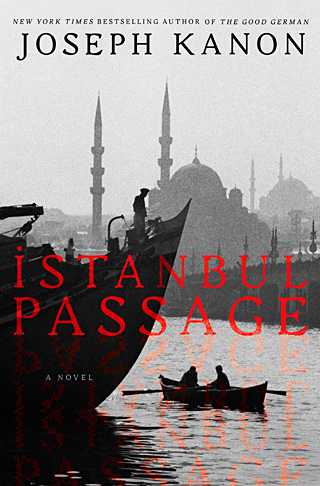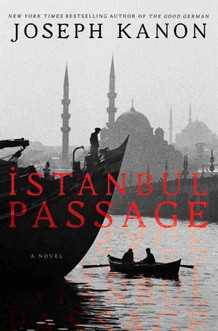By Pramod K Nayar | Agency: DNA
Book: Istanbul Passage
Author: Joseph Kanon
Publisher: Simon and Schuster
Pages: 401
Price: Rs499
 Istanbul: a city of domes, minarets and romance. Also of espionage, betrayal and mystery, if Kanon is to be believed. Set in the years right after the end of World War II, Istanbul Passage is the story of Leon Bauer, a do-anything-and-everything American on the side of the Allies. Known tobacco trader, shadowy businessman, devoted husband, amoral spy and sympathetic Samaritan, Leon helped Jews and other refugees reach England, Europe or America during the war years. Leon’s wife, Anna, is now virtually a vegetable — though not comatose — in a hospital in Istanbul. She has been reduced to this state after seeing a ship full of illegal immigrants whom she had helped put on board, including several children, drown off the coast of Istanbul.
Istanbul: a city of domes, minarets and romance. Also of espionage, betrayal and mystery, if Kanon is to be believed. Set in the years right after the end of World War II, Istanbul Passage is the story of Leon Bauer, a do-anything-and-everything American on the side of the Allies. Known tobacco trader, shadowy businessman, devoted husband, amoral spy and sympathetic Samaritan, Leon helped Jews and other refugees reach England, Europe or America during the war years. Leon’s wife, Anna, is now virtually a vegetable — though not comatose — in a hospital in Istanbul. She has been reduced to this state after seeing a ship full of illegal immigrants whom she had helped put on board, including several children, drown off the coast of Istanbul.
Now that the war is over, Leon has very little to do. But then, his contact at the American consulate, Tommy, gives Leon one final assignment. Leon has to bring in a man called Alexei and ensure his safe passage out of Istanbul. Leon’s collaborator and co-worker, Mihayi, recognises Alexei as a German officer responsible for horrific butchery in Poland. But Leon is committed to the commission and committed to the task he’s been given.
A shootout at the time of Alexei’s arrival kills Tommy and immediately, Leon is in trouble. Suspicion falls on him. Alexei becomes his sole responsibility with both the Russians and the Americans after him. Diversion comes in the form of Kay Bishop, the wife of an American diplomat. Leon and Kay have a brief affair but when another dead body is added to the pile and the Turkish secret police join the gang hunting Leon and Alexei, Kay decides to leave Leon. Dogged by all these people, Leon manages to get Alexei close to the border. Here things go wrong again, with betrayals and shootouts in which Alexei is killed and Leon, injured. Spoiler alert: Leon recovers and continues to stay in Istanbul, hoping that one day Anna will recover and they will be able to return to the USA.
Kanon’s novel seeks to build on the tradition of the spy-thriller and action tale, but fails in both genres. The intrigues that characterise the former are toned down and the action element is minimal. Istanbul itself does not come alive, despite the enormous possibilities the city holds (most recently explored wonderfully by Elizabeth Kostova’s The Historian). Leon’s moral dilemma — vis a vis Kay — is set up well, but tapers out. A greater moral crisis is hinted at in terms of his questionable commitment to securing Alexei’s freedom. Should one aid a war criminal responsible for the slow, torturous deaths – the massacred Poles were executed by being taken through the meat-packing process an`d impaled, sliced and butchered — of innocents? Or is it that once you have taken responsibility for somebody — no matter what their history — you must fulfil your obligations? The sense of unquestioning hospitality that Leon exhibits towards Alexei seems bewildering ethically and philosophically. However — and this is interesting — we discover that Leon’s determination to help Alexei escape has more to do with Alexei’s potential as a bargaining chip for Leon and Anna.
The real failings of Istanbul Passage are the tepid prose and the plodding plot. Read it if this is the only book you have not read in the airport bookshop.
via Book Review: Istanbul Passage – Lifestyle – DNA.

